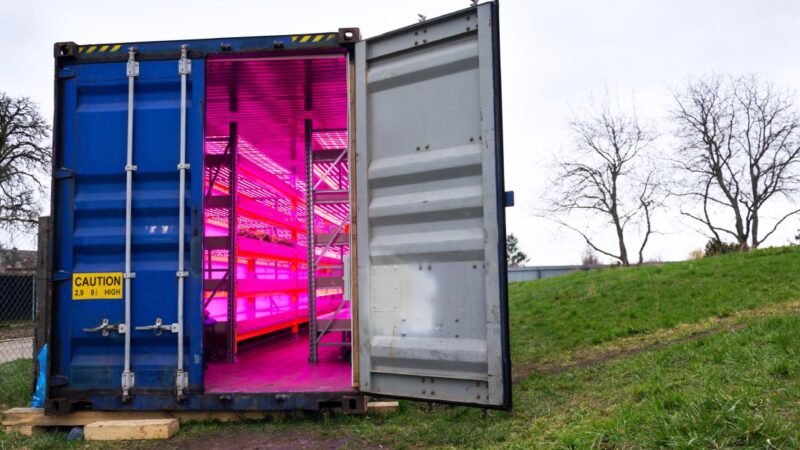Leasing vs. Buying Solar Panels: Which Option Makes the Most Financial Sense?
Homeowners considering solar energy often face a crucial decision: should they lease or buy their solar panels? This choice can significantly impact their financial savings, energy independence, and long-term benefits. Both options offer access to clean energy and potential savings on electricity bills, but they come with distinct financial implications that homeowners must carefully evaluate. Freedom Forever solar solutions are helping make clean energy more accessible by educating homeowners on the financial and environmental advantages of both leasing and ownership.
The decision between leasing and buying hinges on several key factors, including upfront costs, long-term savings, ownership benefits and individual financial goals. By understanding these differences, homeowners can make an informed choice that aligns with their energy needs and budget. Understanding these key differences can help homeowners determine the best approach based on their energy needs and budget.
How Buying Solar Panels Works
Purchasing solar panels outright or financing them with a solar loan allows homeowners to own their systems. This option typically provides the highest long-term savings, along with access to financial incentives that significantly reduce the cost.
One of the main advantages of buying solar panels is the potential for long-term energy savings. Since homeowners generate their electricity, they reduce or eliminate their reliance on the utility grid, leading to lower electric bills. Those who purchase their system can also benefit from the 30% federal solar tax credit (ITC), along with state and local incentives that further lower the cost of installation. Additionally, owning a solar system increases property value, as homes with solar panels tend to sell for more than those without. Unlike leased systems, which can complicate real estate transactions, an owned solar system is an attractive feature for potential buyers.
Despite the financial advantages, buying solar panels requires a higher upfront investment. A typical residential system costs between $15,000 and $30,000 before incentives, making it a significant expense. However, many homeowners choose solar financing options, such as loans, to spread the cost over time. This allows them to go solar without the burden of a large initial payment while still benefiting from ownership.
How Leasing Solar Panels Works
Leasing provides an alternative for homeowners who want to install solar but prefer a lower upfront cost. With a solar lease or a Power Purchase Agreement (PPA), the solar provider owns and maintains the system while the homeowner pays a fixed monthly fee or a reduced rate for the electricity it generates.
Leasing eliminates the need for a large upfront investment, making it an accessible option for homeowners who may not qualify for financing. Instead of purchasing the system, homeowners pay a set monthly amount or a per-kilowatt-hour rate that is often lower than what they would pay their utility provider. The solar provider covers maintenance and repairs, relieving homeowners of upkeep responsibilities. Leasing provides predictable monthly costs, which can be appealing to those who prefer a structured payment plan.
However, leasing comes with trade-offs. Since the homeowner does not own the system, they cannot take advantage of federal or state tax credits, which reduces the overall financial benefits. Leasing also does not increase home value in the same way an owned system does. If a homeowner decides to sell their property before the lease term ends, typically 20 to 25 years, they must either transfer the lease to the new buyer or buy out the contract, which can complicate the sale process.
Financial Comparison: Leasing vs. Buying
When deciding between leasing and buying, homeowners should consider the long-term financial impact of each option. While leasing may offer short-term affordability, purchasing a solar system provides more substantial savings over time.
Buying a system eliminates monthly lease payments, allowing homeowners to generate their electricity at no ongoing cost once the system is paid off. On the other hand, leasing provides immediate savings but results in lower overall financial benefits. While solar loans allow homeowners to finance their systems with manageable payments, leased systems do not offer equity-building advantages.
To put the savings into perspective, consider a homeowner who installs a 6-kilowatt (kW) system and saves $1,500 per year on electricity. If they purchase the system for $20,000 and apply available tax incentives, they could break even in five to eight years. Over a 25-year system lifespan, they could save tens of thousands of dollars in electricity costs. In contrast, a leased system provides moderate savings but never eliminates electricity payments since the homeowner continues to pay the provider for power.
How Solar Financing Can Make Buying More Affordable
For homeowners interested in buying but concerned about cost, solar financing provides an alternative to paying upfront. Several financing options allow homeowners to spread out payments while still benefiting from incentives and ownership advantages.
Solar loans are the most common financing option, allowing homeowners to make monthly payments instead of paying for the system all at once. Secured solar loans, which use home equity as collateral, often have lower interest rates, while unsecured loans provide flexibility without requiring collateral. Some states also offer Property Assessed Clean Energy (PACE) financing, which allows homeowners to pay solar bills through their property taxes. Financing options make it easier for homeowners to go solar without a large upfront investment. Because they still own the system, they can take advantage of tax credits and long-term savings.
As solar adoption increases, leasing and buying options continue to evolve, providing homeowners with more choices than ever before. While ownership offers greater long-term financial benefits, leasing remains a viable option for those seeking a lower upfront cost. Freedom Forever, a leader in residential solar installation, is helping make solar more accessible by educating homeowners on its financial and environmental advantages while offering flexible options that align with their energy goals and budget.
Which Option Is Right for You?
Deciding between leasing and buying solar panels comes down to individual financial goals and homeownership plans. Homeowners who want maximum savings, tax incentives and long-term equity typically find that buying is the best investment. Those who prioritize lower upfront costs and maintenance-free solar access may prefer leasing.
Regardless of the choice, transitioning to solar energy provides long-term financial and environmental benefits. With continued advancements in technology and financing options, homeowners now have more flexibility than ever to choose a solar solution that aligns with their budget and sustainability goals. Understanding the financial implications of each option ensures homeowners can make the best decision for their specific situation while contributing to a cleaner energy future.
![solar panels representation image [Photo by Kindel Media from Pexels: https://www.pexels.com/photo/nature-industry-house-roof-9875447/]](http://ourdailynewsonline.com/wp-content/uploads/2025/05/pexels-kindelmedia-9875447-scaled.jpg)



